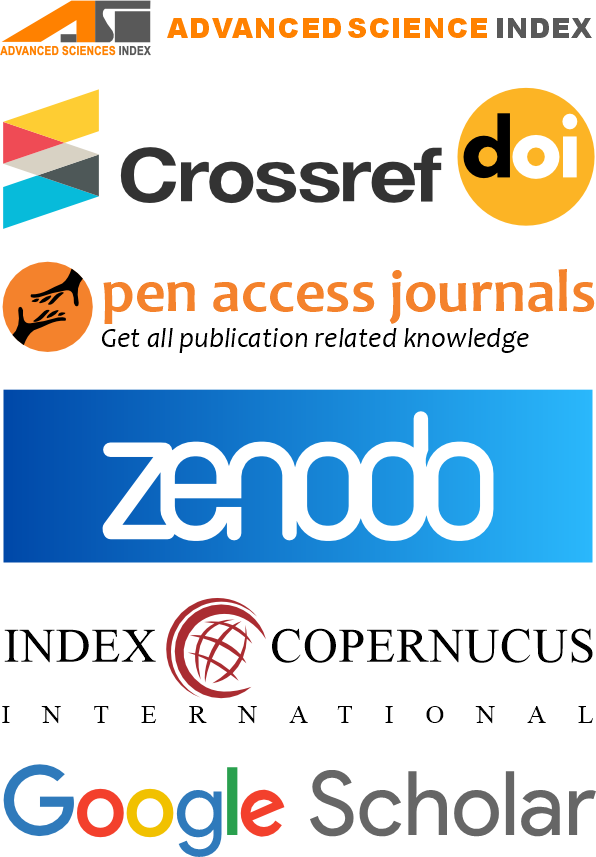Beyond Grades: Exploring the Link Between Ethical Values and Academic Achievement
DOI:
https://doi.org/10.55737/rl.2025.43091Keywords:
Ethical Values, Academic Achievement, Higher Education Students, Moral Development, Value Education, Predictors of AchievementAbstract
In recent years, the integration of ethical values into higher education has gained substantial recognition. This study investigated the relationship between ethical values and academic achievement among university students, focusing on six core dimensions: trustworthiness, respect, responsibility, fairness, caring, and citizenship. Data were collected using self-assessment and peer-assessment instruments and analyzed through a quantitative survey design. Descriptive statistics revealed a moderate to high prevalence of ethical values from both self-perceived and peer-reported perspectives. Independent samples t-test results indicated significant differences between self and peer assessments for trustworthiness, respect, and responsibility, while no significant differences emerged for fairness, caring, and citizenship. Regression analysis further identified responsibility and caring as significant predictors of academic achievement. These findings underscore the pivotal role of students’ ethical self-concept—particularly in terms of responsibility and empathy—in fostering academic success. The study recommends embedding character education into higher education curricula and adopting pedagogical frameworks that promote both cognitive excellence and ethical development.
References
Allari, R. S., Atout, M., & Hasan, A. A.-H. (2020). The value of caring behavior and its impact on students’ self-efficacy: Perceptions of undergraduate nursing students. Nursing Forum, 55(2), 259–266. https://doi.org/10.1111/nuf.12424
Brown, M., McGrath, R. E., Bier, M. C., Johnson, K., & Berkowitz, M. W. (2023). A comprehensive meta-analysis of character education programs. Journal of Moral Education, 52(2), 119–138. https://doi.org/10.1080/03057240.2022.2060196
Calabor, M., Merello, P., & Zorio-Grima, A. (2025). Developing ethical skills with films: A successful experience in auditing. The International Journal of Management Education, 23(2), 101127. https://doi.org/10.1016/j.ijme.2024.101127
Character Counts! Coalition. (1992). The Aspen Declaration on character education. Josephson Institute of Ethics. https://charactercounts.org/aspen-declaration
Darkwa, B. F., & Darkoh, P. (2023). To be ethical or unethical in organisation: the role of perceived personal values of financial accounting students on their ethical behaviours. Canadian Journal of Educational and Social Studies, 3(1), 96-116. https://doi.org/10.53103/cjess.v3i1.101
Durlak, J. A., & Mahoney, J. L. (2022). Fostering positive youth development through school-based programs: Evidence and implications. Educational Psychologist, 57(2), 85–97. https://doi.org/10.1080/00461520.2022.2026434
Eisenberg, N., Spinrad, T. L., & Valiente, C. (2020). Responsibility and caring as predictors of academic outcomes: A developmental perspective. Developmental Psychology, 56(4), 698–710. https://doi.org/10.1037/dev0000894
Erduran Tekin, Ö. (2024). Academic self-discipline as a mediating variable in the relationship between social media addiction and academic achievement: mixed methodology. Humanities & Social Sciences Communications, 11(1). https://doi.org/10.1057/s41599-024-03633-x
Icka, E., & Kochoska, J. (2024). The Influence of Teachers as an Ethical Model on the Students' development. International Journal of Education Teacher, 27, 99-107. https://doi.org/10.20544/teacher.27.12
Iloka, P. C. (2025). Teaching Integrity: Strategies for Fostering Ethical Behavior in Students. UNIZIK Journal of Educational Research and Policy Studies, 19(1). https://unijerps.org/index.php/unijerps/article/view/871
MacCann, C., Jiang, Y., Brown, L. E. R., Double, K. S., Bucich, M., & Minbashian, A. (2020). Emotional intelligence predicts academic performance: A meta-analysis. Psychological Bulletin, 146(2), 150–186. https://doi.org/10.1037/bul0000219
Nucci, L. P., & Narvaez, D. (Eds.). (2022). The Handbook of Moral and Character Education (2nd ed.). Routledge. https://doi.org/10.4324/9781003185285
Pavlova, M. (2021). Reframing values in education: Transforming societies through character and ethics. Prospects, 50(4), 349–365. https://doi.org/10.1007/s11125-021-09563-y
Prashar, A., Gupta, P., & Dwivedi, Y. K. (2024). Plagiarism awareness efforts, students’ ethical judgment and behaviors: a longitudinal experiment study on ethical nuances of plagiarism in higher education. Studies in Higher Education, 49(6), 929–955. https://doi.org/10.1080/03075079.2023.2253835
Ramadhani, T., Widiyanta, D., Sumayana, Y., Santoso, R. Y., & Agustin, P. D. (2024). The role of character education in forming ethical and responsible students. IJGIE (International Journal of Graduate of Islamic Education), 5(2), 110-124.
Shapira-Lishchinsky, O. (2020). A multinational study of teachers’ codes of ethics: Attitudes of educational leaders. NASSP Bulletin, 104(1), 5–19. https://doi.org/10.1177/0192636520907694
Su, N., Wei, X., & Han, X. (2024). Higher academic performance, lower level of ethical responsibility? Analysis of ethical responsibility among top-notch students in Shanghai of China. ECNU Review of Education. https://doi.org/10.1177/20965311241300541
Talloires Network of Engaged Universities. (2021). 2021 Talloires Declaration on Higher Education: A moment of challenge and opportunity. Talloires Network.
Wabiser, Y. D., & Irianto, P. (2024). Problematics of Students’ Discipline Value in Academic Activities and Non Academic. Formosa Journal of Science and Technology, 3(2), 355-366. https://doi.org/10.55927/fjst.v3i2.8241
Wang, C., Wang, H., Li, Y., Dai, J., Gu, X., & Yu, T. (2025). Factors influencing university students’ behavioral intention to use generative artificial intelligence: Integrating the theory of planned behavior and AI literacy. International Journal of Human-Computer Interaction, 41(11), 6649–6671. https://doi.org/10.1080/10447318.2024.2383033
Zhang, J., & Zeng, Y. (2024). Effect of college students’ smartphone addiction on academic achievement: The mediating role of academic anxiety and moderating role of sense of academic control. Psychology Research and Behavior Management, 933-944. https://doi.org/10.2147/PRBM.S442924






